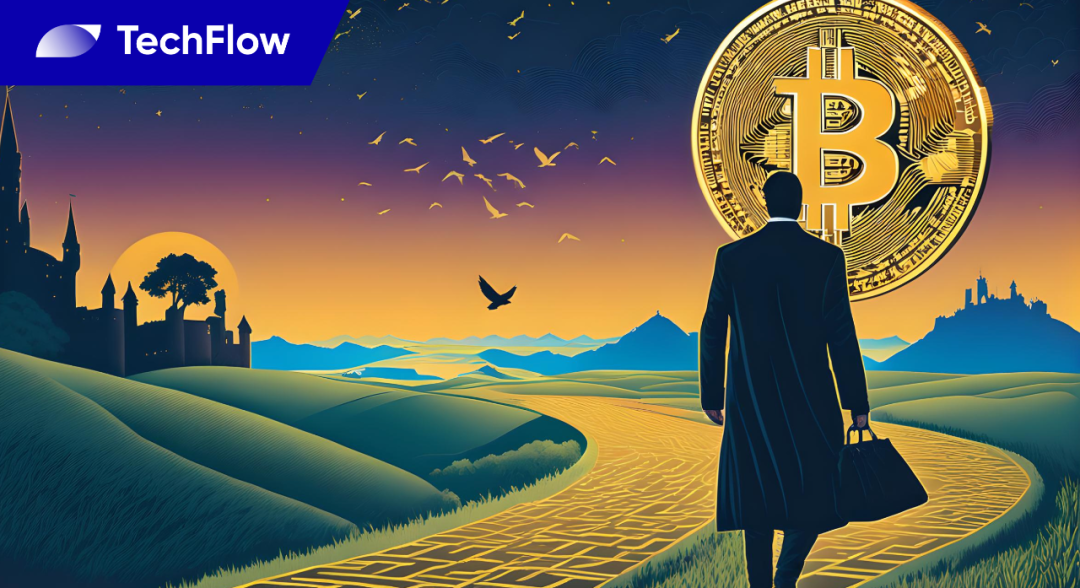Former CFTC leader proposes a digital dollar plan based on blockchain
According to Babbitt news on October 17, the former head of the US Commodity Futures Trading Commission (CFTC) proposed to establish a government-approved blockchain-based digital dollar plan for fear of the dollar's position being affected by the digital renminbi and Libra.
The following is the details of the plan:

(Photo: former CFTC Chairman J. Christopher Giancarlo)
- Bakkt's opening performance is slow, why are the insiders in the encryption industry still optimistic about it?
- Viewpoint | Libra on Facebook, why is the voice of support and opposition so strong?
- Can Ethereum go to the high-speed development of centralization finance, can it trigger the next round of blockchain bull market?
Original author: former CFTC Chairman J. Christopher Giancarlo and former CFTC chief innovation officer Daniel Gorfine
The United States has always been complacent about the technological advantages it has, until the Soviet satellite launch in 1957 awakened us. The recent development of digital currency has also threatened the dominance of the dollar, and policymakers in Washington have begun to notice this.
Important players, including central banks and social media platforms, may launch new currencies in the next few years. As the network evolves, they may eventually erode the dollar as the most popular international currency. Incidents such as countries and companies trying to circumvent US sanctions show that the world's demand for trading systems outside the US dominant monetary system is growing.
This kind of transformation will be troublesome for the United States. Formerly, the pound was once the pillar of global trade, but it has experienced a decline. Guiding the global economic order will help the United States stabilize food and energy prices, maintain low housing and commercial loan borrowing costs, combat illegal financing, promote global demand for US government debt, and promote business development.
The emergence of an unconstrained competition system may harm these benefits. Whether it's a digital renminbi network or a commercial risk token supported by a basket of global currencies, the dollar's challenger may end the fragile world economic order that Americans have long taken for granted. Faced with this threat, holding a self-satisfied attitude may cause lasting damage to the US economy.
We proposed a digital dollar, a government-approved blockchain agreement created and maintained by an independent NGO, but managed by banks and other trusted payment organizations. Cash entering the system will be converted into digital dollars on the blockchain, while cash is deposited in a special escrow account maintained by the Federal Reserve.
The system can start with a pilot project: People can use their preferred provider's smartphone app to buy digital dollars and then use them in their daily transactions. This mechanism will ultimately enable the dollar to be digitized in domestic and international transactions.
What are the benefits of this system? The new payment network will still rely on trusted, regulated intermediaries to maintain digital wallets and verify transactions. But it will also allow individuals, companies and governments to take advantage of the potential advantages of distributed ledger payments, such as higher transaction speeds, higher access rights and better transparency. This should mean lowering the cost of businesses and consumers, as well as new economic models based on real-time trading and micropayments.
Security will be another major advantage. Since no individual certifier who pays the books can keep complete information on all payments, the system will address some of the privacy and counter-products that arise when a single intermediary such as WeChat or a foreign central bank holds complete information. Monopoly issue.
Most importantly, this system will expand the central role of the dollar in global finance compared to private or foreign digital currencies and enable the dollar to compete confidently in the new digital age. The first major digital currency program to attract US users will receive full and clear support from the US dollar.
This new digital currency system will require the support and participation of key actors including the Federal Reserve and commercial banks, non-bank intermediaries, technology innovators and social media platforms. Its independent agreement will prevent conflicts of interest, deploy existing best practices, and gradually extend the network to more domestic and foreign participants.
There are no perfect solutions to solve the challenges and promises of digital currencies, and no one can predict all the technological advances that these efforts will produce. When President Eisenhower made a recommendation to the National Aeronautics and Space Administration (NASA), the same was true when President Kennedy vowed to send a man to the moon. The United States must once again build a team of the world's smartest people, this time to update the global economic order and ensure our freedom and prosperity.
We will continue to update Blocking; if you have any questions or suggestions, please contact us!
Was this article helpful?
93 out of 132 found this helpful
Related articles
- Elite club or decentralized organization? A picture reveals the relationship between members of the Libra Association
- Token is the window to enter Web3? Get a close look at the commercial microcosm of token economics
- Facebook, Telegram currency blocked: regulatory demise and possible opportunities
- Market Analysis: The market has not stabilized, and the vigilance suddenly "empty"
- CoinMarketCap publishes a cryptocurrency rate page that allows users to compare
- Babbitt column | Libra coin myth: Can you achieve a precise balance?
- BTC short-term trend is weak, is it a dishwashing or a downward trend?





